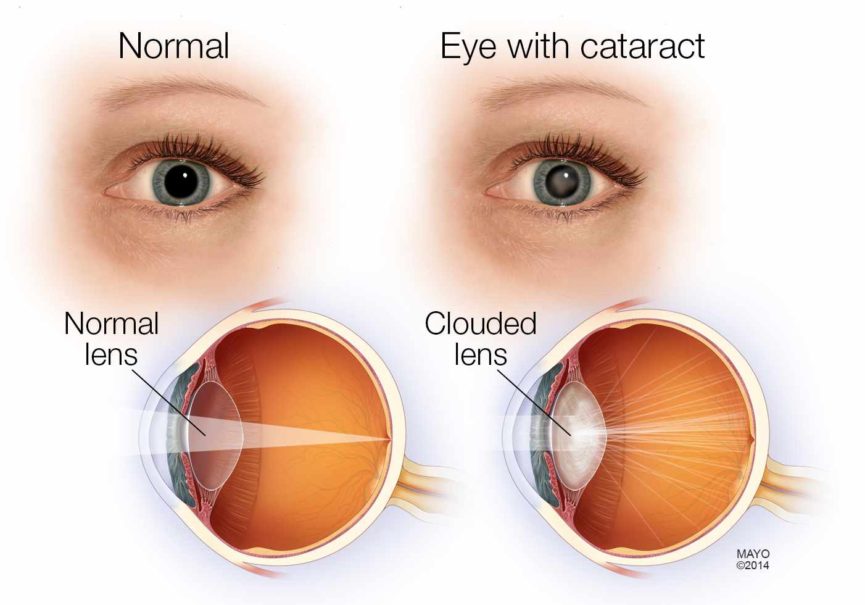Just like a camera, the human eye has a lens that focuses light on the retina, the film in the back of the eye. With advancing age, the lens of the human eye becomes cloudy typically in your 60s or 70s. The cloudy lens is called a cataract. Dr. Jay Mulaney, a Board certified ophthalmologist at Central Florida Eye Associates in Lakeland says “The cloudy lens blurs vision, making it more difficult to read fine print or street signs. It can also cause glare symptoms with sunlight or with headlights of oncoming cars.”
When the cataract causes significant vision symptoms, it can be removed surgically through a small incision using a technique called phacoemulsification in which ultrasonic energy is used to liquefy the cataract and suction it out. Cataract surgery is a quick and painless procedure done by an ophthalmologist on an outpatient basis in the surgery center. The patient typically goes home with a patch on the eye which is worn for one day.
According to Dr. Mulaney, the natural lens is replaced during surgery with an artificial lens implant called an intraocular lens which is placed in the eye. This allows one to focus better and improves the clarity of vision. Modern day intraocular lens implants are also used to correct the patient’s glasses prescription at the time of surgery. For example astigmatism can be corrected by limbal relaxing incisions on the cornea or by using a toric intraocular lens. This allows good distance vision but one has to still wear glasses for reading. Multifocal intraocular lenses can correct both distance and near vision and significantly reduce a person’s dependence on glasses for near as well as far.
Complications with cataract surgery are very uncommon. It is highly successful and is the most common surgical procedure done worldwide. About 3 million cataract surgeries are performed annually in the United States alone. Besides Dr. Mulaney, Watson clinic ophthalmologists also perform cataract surgery at Lakeland Surgical and Diagnostic Center which is the largest ambulatory surgery center in Polk County and one of the largest in Florida.
Disclaimer: Health experts suggest that you talk to your doctor before you start, change or modify your medications, lifestyle or current treatment regimen.
Picture credit: Faces looking blurry? Seeing halos at night? Could be cataracts | The Daily Courier | Prescott, AZ (dcourier.com)
For more information about Cataracts, click on the followings:
Cataracts – Symptoms and causes – Mayo Clinic
Cataracts Center: Symptoms, Causes, Tests, and Treatments (webmd.com)
What Are Cataracts? – American Academy of Ophthalmology (aao.org)
Dr. Adam Gant | Lakeland Surgical & Diagnostic Center (lsdc.net)
Dr. Jay Mulaney | Lakeland Surgical & Diagnostic Center (lsdc.net)
Dr. Musa Awan | Lakeland Surgical & Diagnostic Center (lsdc.net)
Dr. Shawn Chhabra | Lakeland Surgical & Diagnostic Center (lsdc.net)

